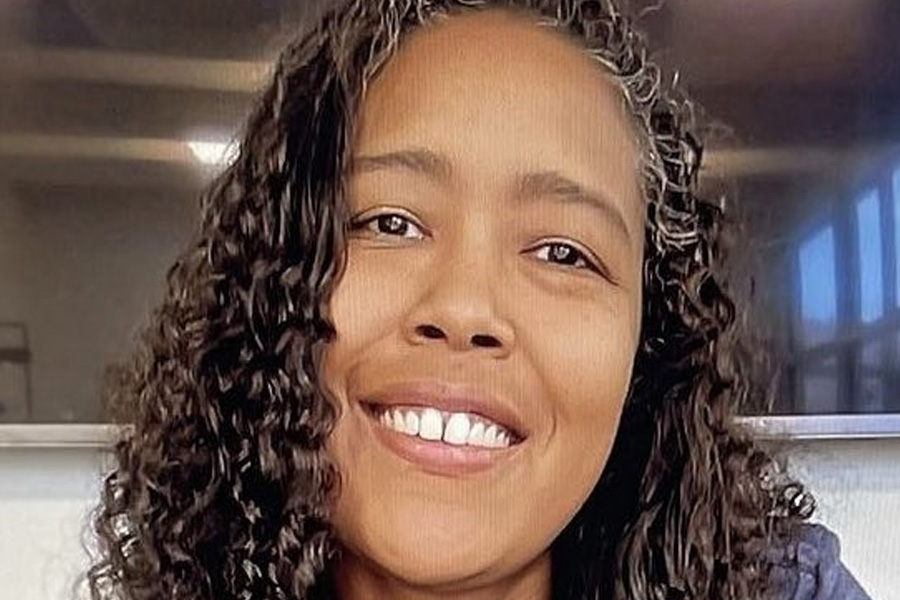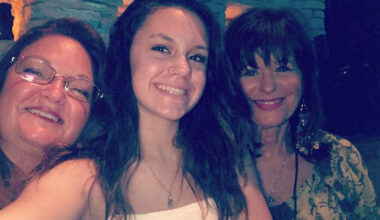Basic Information
| Field | Details |
|---|---|
| Full Name | Makeda Jahnesta Marley (often published as Makeda Jahnesta) |
| Birth | May 1981, late May; born in Miami, Florida |
| Parents | Robert Nesta “Bob” Marley (father), Yvette Crichton (mother) |
| Notability | Widely reported as Bob Marley’s youngest daughter |
| Education | Coatesville Area Senior High (PA); attended West Chester University |
| Occupation | DJ, entrepreneur, cannabis advocate |
| Key Moments | 2008 arrest in Pennsylvania; 2010 guilty plea and probation |
| Public Presence | Active on Instagram, X, and YouTube under variations of her name and brand (e.g., LivLuv Experience) |
Origins and legacy
Makeda Jahnesta arrived in the world just weeks after Bob Marley’s death on May 11, 1981—an afterglow birth in Miami that seemed to carry the bittersweet hush of a curtain call. She is frequently identified as the youngest of the Marley children, a place at the end of the lineage’s roll call that’s earned her both curiosity and expectation. Being born at the hinge of a cultural epoch—when reggae’s most recognizable voice had just fallen silent—meant inheriting a surname that can open doors, close others, and demand nerve to walk through either.
Her public narrative honors that legacy while carving out autonomy. Makeda’s speeches, event appearances, and interviews often thread personal resilience through family history, marrying the lore of her father’s music to modern advocacy. Where official biographies sometimes differ on fine details, Makeda’s own emphasis is consistent: celebrate the roots, build a distinctive branch.
Family members — who’s who
Beneath the Marley canopy grows a wide, well-known family tree. Makeda is regularly listed among Bob Marley’s children, often noted as the youngest. The network includes half-siblings who became artists, entrepreneurs, and torchbearers of reggae’s global imprint.
| Name | Relation | Notes |
|---|---|---|
| Bob Marley | Father | Reggae icon; died May 11, 1981 |
| Yvette Crichton | Mother | Associated with Makeda’s Miami birth |
| Sharon Marley | Half-sibling | Often credited for arts and philanthropy |
| Cedella Marley | Half-sibling | Creative director, author, entrepreneur |
| Ziggy (David Nesta) Marley | Half-sibling | Grammy-winning musician |
| Stephen Marley | Half-sibling | Grammy-winning producer and artist |
| Robbie (Robert) Marley | Half-sibling | Known within family biographies |
| Rohan Marley | Half-sibling | Entrepreneur; lifestyle and coffee ventures |
| Karen Marley | Half-sibling | Designer; public figure in fashion/arts |
| Stephanie Marley | Half-sibling | Included in many family rosters |
| Julian Marley | Half-sibling | Musician and performer |
| Ky-Mani Marley | Half-sibling | Actor and musician |
| Damian “Jr. Gong” Marley | Half-sibling | Grammy-winning artist |
Makeda’s position in this constellation shapes her public life: part of a generational chorus yet intent on her own verse.
Career and activities
As a DJ and event curator, Makeda has built the LivLuv Experience around music, culture, and community—spaces where basslines can be therapy and dance floors a small democracy. Her public brand often blends sound with storytelling, drawing on the Marley family’s long tradition of fusing artistry and social conscience. In these roles, she moves between stages, pop-ups, and interviews, positioning herself as an organizer who crafts inclusive rooms and a voice that pushes for dignity in policy conversations.
Cannabis advocacy threads through her work. When she discusses the plant, it’s typically in terms of heritage and healing, not just commerce. She’s spoken about stigma, opportunity, and access—how communities historically penalized for cannabis should be among those leading its emerging industries. That arc from experience to advocacy defines much of her recent public presence.
Legal history and turning point
Makeda’s name surfaced widely in 2008 after police discovered a marijuana grow operation at her Pennsylvania-area home. In 2010, she pleaded guilty to growing marijuana and received probation as part of the sentence. During court proceedings, she described having exhausted a trust fund by age eighteen—a detail that complicated public assumptions about inherited wealth. The incident, however, became a pivot: her later appearances frequently frame the episode as catalyst, redirecting attention to reform, inclusion, and the role of cannabis in cultural memory and medicine.
Education and early life
Makeda graduated from Coatesville Area Senior High and attended West Chester University. Those Pennsylvania years anchor much of her timeline, foreshadowing both the legal events and the subsequent recommitment to creative work and advocacy. The practical grounding of local schools and communities—away from the glare of superstar mythology—helped shape her approach: equal parts grassroots and global, public-facing yet personally defined.
Timeline — compact highlights
| Date | Event |
|---|---|
| May 11, 1981 | Bob Marley dies in Miami |
| Late May 1981 | Makeda Jahnesta born in Miami |
| 1999 | Reported Coatesville Area Senior High graduation |
| 2008 | Arrest in Pennsylvania tied to marijuana cultivation |
| 2010 | Guilty plea; probation and alternative sentencing |
| 2018–2022+ | Public activity as DJ/entrepreneur; cannabis advocacy; media interviews and event appearances |
Recent presence and projects
Makeda’s visibility has grown through interviews, event hosting, and social channels. She appears in clips covering community actions, panels, and cannabis-culture programming, leaning into the intersection of music and social change. Much of her output centers on reclaiming narrative: pairing rhythm with responsibility, identity with impact. Whether speaking on the legacy she carries or the future she imagines, Makeda frames the Marley surname as both inheritance and instrument—useful, powerful, but only as meaningful as the work it helps her do.
The Marley name and personal identity
In public settings, she alternates between “Makeda Jahnesta” and “Makeda Jahnesta Marley,” acknowledging both the individual and the lineage. Names in the Marley family are more than labels; they are shorthand for a global archive of sound and struggle. Makeda’s choice to balance the two reflects a delicate dance: honoring a father she never met while asserting an identity built in the here and now.
Music, movement, and message
Makeda’s DJ sets favor the alchemy that happens in shared spaces. Beats turn into bridges; strangers find common tempo; legacy becomes a live wire running through the room. In interviews, she underscores the idea that music and cannabis culture can be vessels for healing and community building. Her events often lean into that ethos, creating platforms where policy, storytelling, and celebration coexist—part salon, part sound system, part town square.
FAQ
Is Makeda Jahnesta Bob Marley’s daughter?
Yes. She is widely reported as the youngest daughter of Bob Marley and Yvette Crichton.
When and where was she born?
She was born in late May 1981 in Miami, Florida, weeks after Bob Marley’s death.
What does she do professionally?
She works as a DJ, entrepreneur, and cannabis advocate, often under the LivLuv brand.
Did she have legal issues related to cannabis?
Yes. She was arrested in 2008 and pleaded guilty in 2010 to growing marijuana, receiving probation.
Did she inherit a trust fund?
She stated in court that she had exhausted a trust fund by age eighteen.
Where did she go to school?
She graduated from Coatesville Area Senior High and attended West Chester University.
Is she active online?
Yes. She maintains public social profiles and shares event and advocacy updates.
How many Marley siblings does she have?
She is often listed among Bob Marley’s twelve children, typically identified as the youngest.
Does she always use the Marley surname?
She appears publicly as “Makeda Jahnesta” and “Makeda Jahnesta Marley,” depending on context.
What themes define her public work?
Music, community, cannabis reform, and honoring her family’s legacy while forging her own path.



